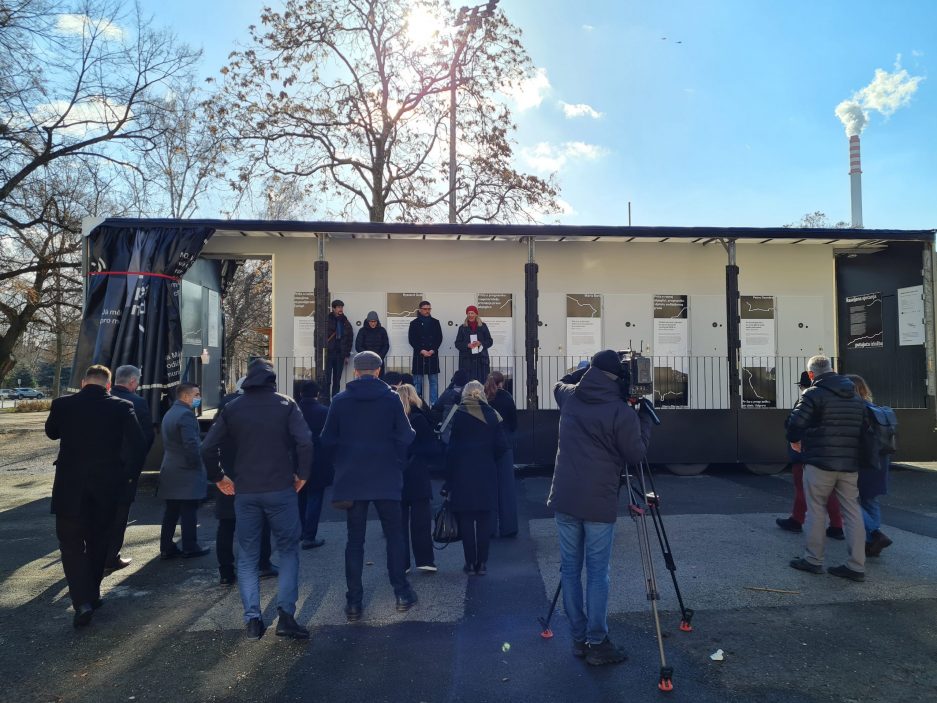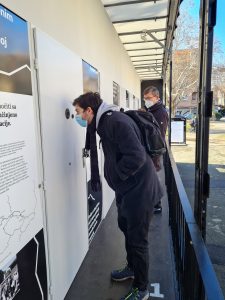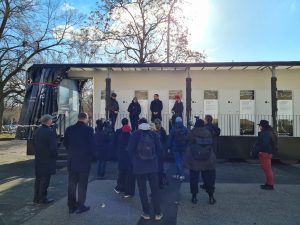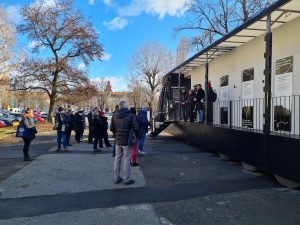The traveling exhibition ”Displaced Memory” opened

At the opening of the multimedia exhibition Displaced Memory on February 1, 2022, the head of Documenta Vesna Teršelič emphasized that the suffering of the survivors of the Second World War did not end with termination of war conflicts. During 2021, Documenta’s team conducted research of the personal life stories of witnesses of the time who survived post-war migrations, in order to better understand their context and try to find answers to questions about how and why they happened.
Historian Franko Dota pointed out that: “in the countries covered by the exhibition, there have been major changes in state borders and social systems since 1943, and especially since 1945, which is topic that is taught in schools, but it is often forgotten that the most important consequence was a change in the ethnic composition of the population.” The curator of the exhibition, Jan Blažek, emphasized that all interviewees, regardless of where they come from, represent the voices of more than twenty million people who had to leave their homes and hearths due to World War II. He emphasized that: “By no means do they want to diminish the memories of the victims of the war, but to emphasize the importance of learning from such stories.”
Documenta’s researcher Alice Straniero spoke about filming: “During the summer of 2021, we filmed five interviews with witnesses of the time from Italy. Stories told by Egidio Rocchi, Ettore Lenich, Mario Biasiol and Andor Brakus and Antonio Vatta, speak of migrations from Istria, Kvarner and Dalmatia after the Second World War, and are part of a traveling exhibition.”
Documenta – Centre for Dealing with the Past












